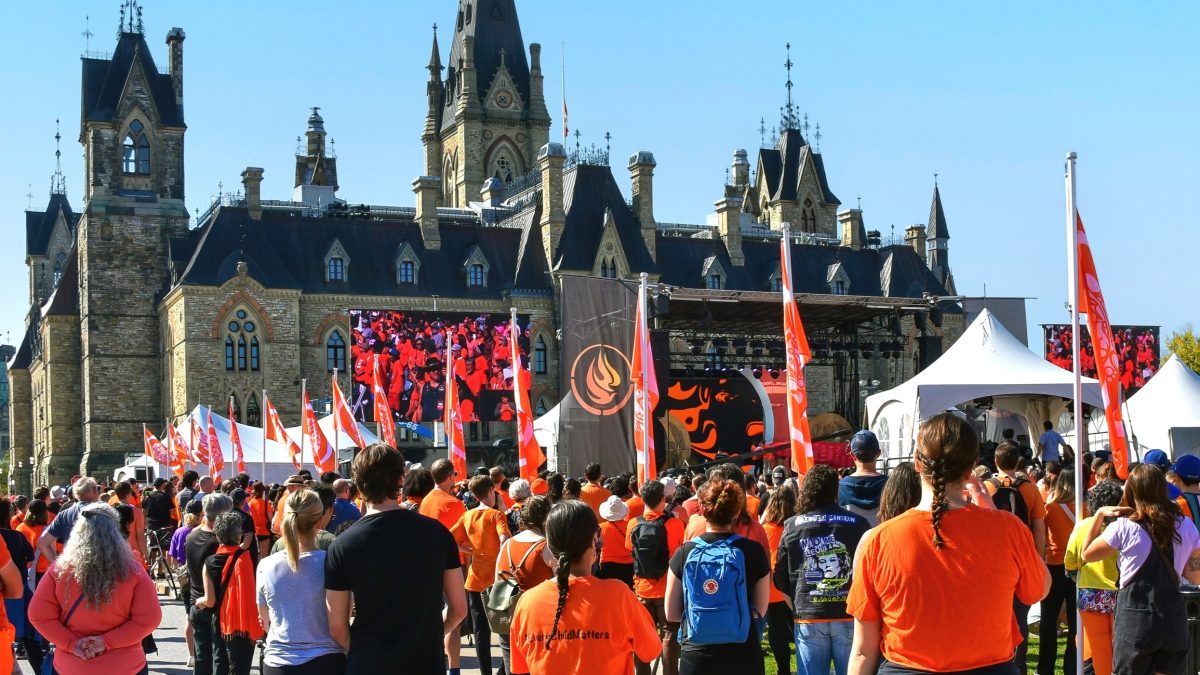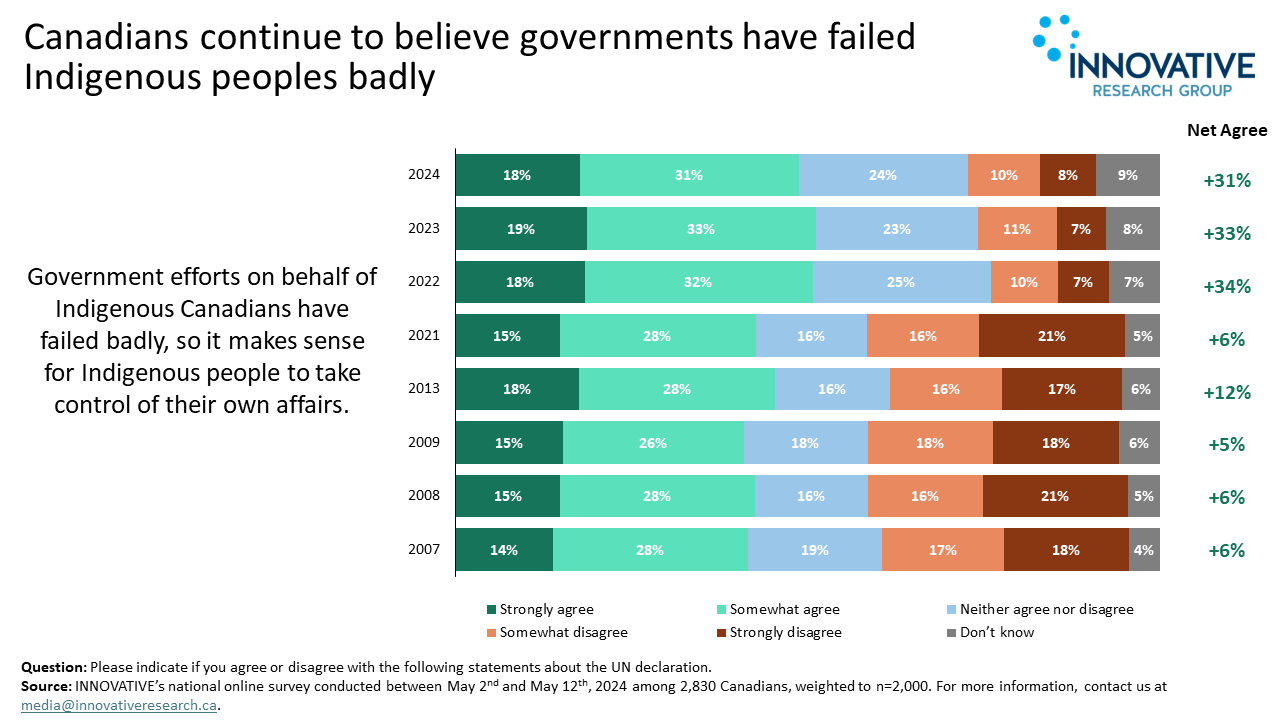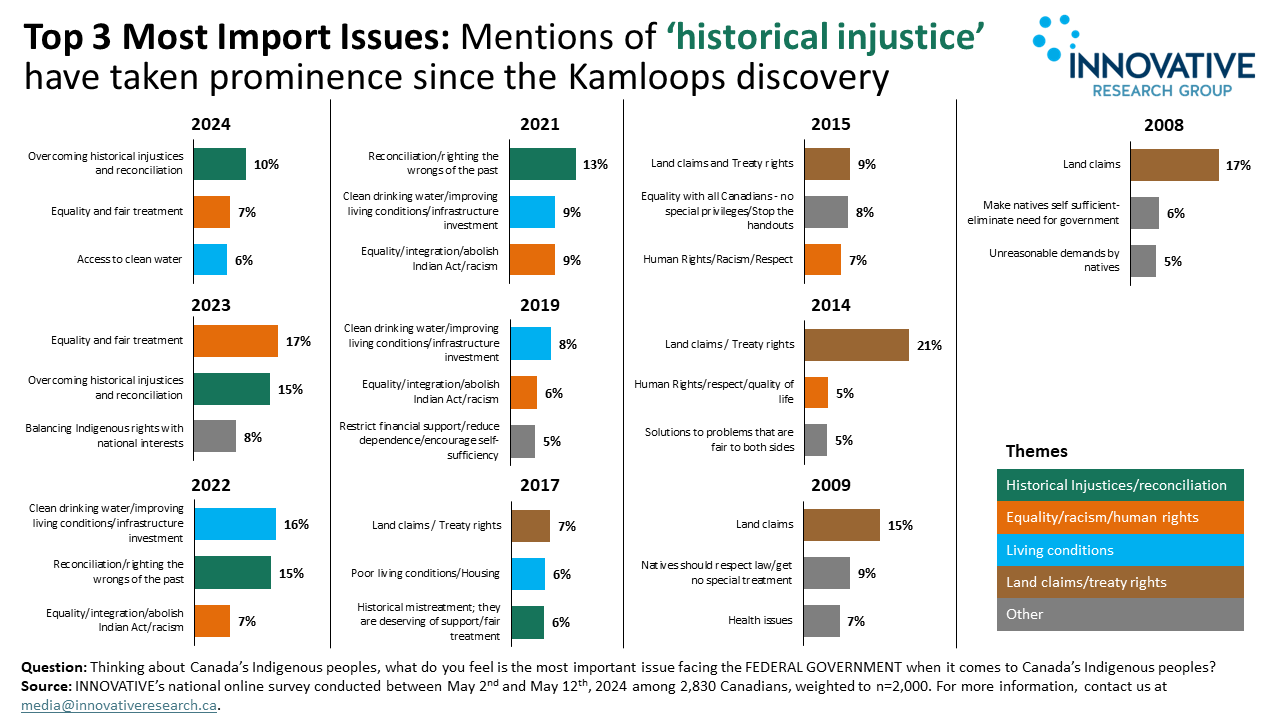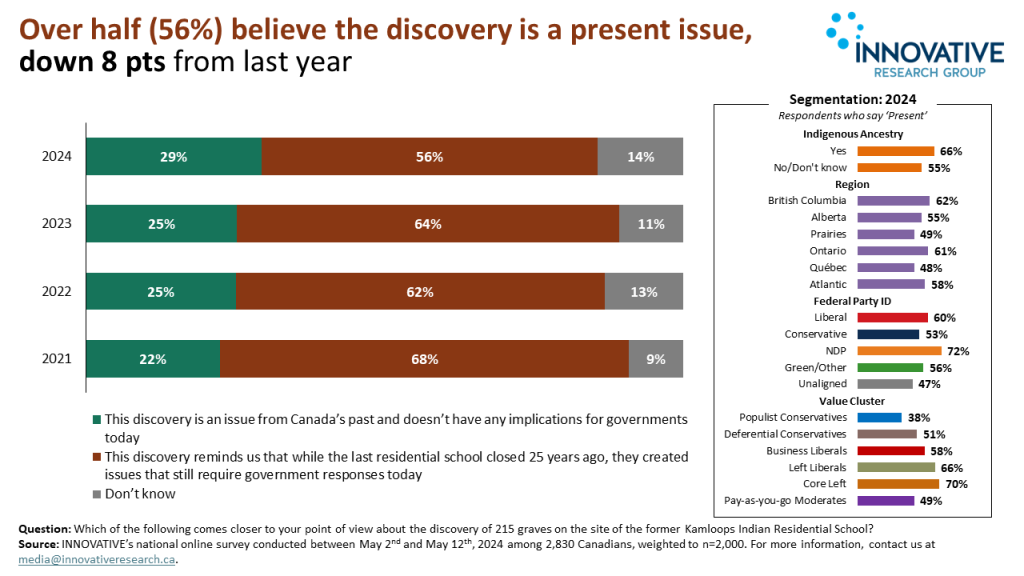
On May 27th, 2021, the discovery of potential unmarked graves on the former site of the Kamloops Indian Residential School shook the nation. The results of a new INNOVATIVE online survey of 2,830 Canadians shows the Kamloops discovery redefined our national discussion of indigenous issues, but some of that impact has ebbed over time.
The Rise of the Historical Injustice Narrative
It may seem hard to believe now, but prior to the Kamloops discovery, few Canadians mentioned overcoming historical injustices and reconciliation when asked what is the most important issue facing the federal government regarding Canada’s Indigenous peoples. In the four years since the discussion, it has been the first or second most important theme in public comments.
We also see this in attitudes. For instance, agreement that government efforts on behalf of Indigenous people have failed badly, so it makes sense for Indigenous people to take control of their own affairs has grown from 43% in 2021 to 49% this year while disagreement has plummeted from 37% to 18%.

Decreased engagement with Indigenous issues
Engagement around Indigenous issues has significantly decreased since 2021. While 75% had read, seen or heard something recently about Canada’s Indigenous people immediately following the Kamloops discovery, only 15% of Canadians reported encountering information regarding Indigenous peoples this year.

Declining support for government action
This year, there is a noticeable decrease in the share of Canadians who say the federal government should do more to address problems facing Indigenous peoples. While 47% still hold this view, that is down from 54% last year and 63% immediately following the Kamloops discovery.
As demands to do more decline, net approval of the federal government’s management of Indigenous affairs has improved, moving from -20% to -13%. Provincial government approval has also seen positive changes, with British Columbia now leading at +8%, while Quebec’s approval has dipped to -2% after being in the lead since 2019.
Declining perceptions of moral obligations
Canadians’ perceptions of moral obligations towards Indigenous peoples continue to trend downward. While 57% still believe Canada has a duty to resolve the inequalities faced by Indigenous peoples, that is a 6 pt. decrease from last year. Similarly, support for compensation for Indigenous peoples dropped from 55% last year to 49% this year (down 6 pts).
Persistent, but diminishing perceptions over residential schools and the Kamloops discovery
Although a significant majority (72%) remain angry about the treatment of Indigenous peoples in residential schools, this is a 7 pt. decrease from last year. Public perceptions on the adequacy of government reparations and acknowledgements have also shifted, with 2-in-5 Canadians feeling the government is doing too little, a fall of 7 pts.
While awareness of the Kamloops Indian residential school discovery has dropped, the majority (56%) still recognize it as an ongoing issue, though this is an 8 pt. decrease from last year. Opinions on the federal government’s response are divided, with 26% approving, 28% disapproving, and 29% who hold neutral views.

Although this year’s results show signs of reduced engagement on Indigenous issues, the discovery of the unmarked graves continues to resonate with Canadians. New themes have entered our national debate, and Canadians are more willing than ever to support Indigenous peoples controlling their own affairs.


































